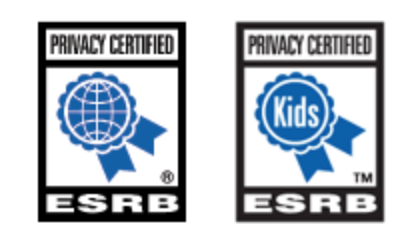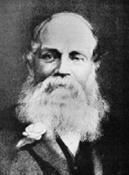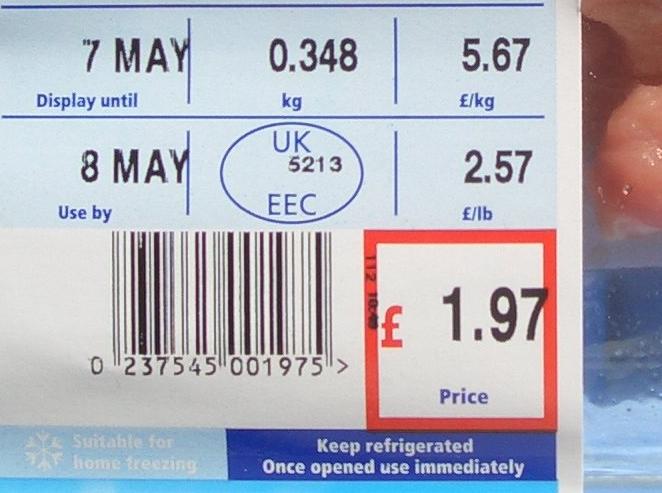|
Privacy Seal
A privacy seal is a type of trust seal or trustmark granted by third party providers for display on a company's website. Companies pay an annual fee (usually ranging from a few hundred to several thousand U.S. dollars) to have an image of the third party provider's seal pasted onto their homepage or privacy policy page. Users can oftentimes click on the seal and be redirected to the web assurance seal service's website which verifies the validity of the privacy seal. They are meant to act as a visual assurance for consumers that the website in question meets a certain standard of privacy. The idea of a privacy seal originates with its physical manifestation – companies have long sought seals of approval like Good Housekeeping to be placed on their tangible products in order to draw in customers who value "quality". While all web assurance seal services follow the guidelines set by the Federal Trade Commission, some providers may have additional requirements. Checks are then condu ... [...More Info...] [...Related Items...] OR: [Wikipedia] [Google] [Baidu] |
Better Business Bureau
Better Business Bureau (BBB) is a private, 501(c)(6) nonprofit organization founded in 1912. BBB's self-described mission is to focus on advancing marketplace trust, consisting of 97 independently incorporated local BBB organizations in the United States and Canada, coordinated under the International Association of Better Business Bureaus (IABBB) in Arlington, Virginia. Better Business Bureau is not affiliated with any governmental agency. Businesses that affiliate with BBB and adhere to its standards do so through industry self-regulation. To avoid bias, BBB's policy is to refrain from recommending or endorsing any specific business, product or service. The BBB rating system uses an A+ through F letter-grade scale. The grades represent BBB's degree of confidence that the business is operating in good faith and will resolve customer concerns filed with the BBB. BBB's ratings are explained on itRatings Overview page BBB employees evaluate a business's behavior when assigning a ... [...More Info...] [...Related Items...] OR: [Wikipedia] [Google] [Baidu] |
Deloitte
Deloitte Touche Tohmatsu Limited (), commonly referred to as Deloitte, is an international professional services network headquartered in London, England. Deloitte is the largest professional services network by revenue and number of professionals in the world and is considered one of the Big Four accounting firms along with EY (Ernst & Young), KPMG and PricewaterhouseCoopers (PWC). The firm was founded by William Welch Deloitte in London in 1845 and expanded into the United States in 1890. It merged with Haskins & Sells to form Deloitte Haskins & Sells in 1972 and with Touche Ross in the US to form Deloitte & Touche in 1989. In 1993, the international firm was renamed Deloitte Touche Tohmatsu, later abbreviated to Deloitte. In 2002, Arthur Andersen's practice in the UK as well as several of that firm's practices in Europe and North and South America agreed to merge with Deloitte. Subsequent acquisitions have included Monitor Group, a large strategy consulting business, in Janu ... [...More Info...] [...Related Items...] OR: [Wikipedia] [Google] [Baidu] |
Ryerson University
Toronto Metropolitan University (TMU or Toronto Met) is a public university, public research university located in Toronto, Ontario, Canada. The university's core campus is situated within the Garden District, Toronto, Garden District, although it also operates facilities elsewhere in Toronto. The university operates seven academic divisions/faculties, the Faculty of Arts, the Faculty of Community Services, the Faculty of Engineering and Architectural Science, the Faculty of Science, The Creative School, the Lincoln Alexander School of Law, and the Ted Rogers School of Management. Many of these faculties are further organized into smaller departments and schools. The university also provides continuing education services through the G. Raymond Chang School of Continuing Education. The institution was established in 1948 as the ''Ryerson Institute of Technology'', named after Egerton Ryerson, a prominent contributor to the design of the Canadian public school system. His views late ... [...More Info...] [...Related Items...] OR: [Wikipedia] [Google] [Baidu] |
Canadian Institute Of Chartered Accountants
The Canadian Institute of Chartered Accountants (CICA) was incorporated by an Act of the Parliament of Canada in 1902, which later became known as the ''Canadian Institute of Chartered Accountants Act''. The CICA developed and supported accounting, auditing and assurance standards for organizations in Canada, developed and delivered education programs, and issued the professional designation of Chartered Accountant. The CICA was a founding member of the International Federation of Accountants and the Global Accounting Alliance. In 2014, CICA merged with Canada's two other major accounting designations to form the Chartered Professional Accountants of Canada. History * 1902 – The Dominion Association of Chartered Accountants (DACA) is incorporated by Private Act of the Parliament of Canada. (SC 1902, c. 58) * 1934 – The Canada Companies Act is amended to provide for the involvement of the DACA in setting standards for accounting policies. * 1938 – All provinces agree that ... [...More Info...] [...Related Items...] OR: [Wikipedia] [Google] [Baidu] |
Expiration Date
An expiration date or expiry date is a previously determined date after which something should no longer be used, either by operation of law or by exceeding the anticipated shelf life for perishable goods. Expiration dates are applied to selected food products and to some other manufactured products like infant car seats where the age of the product may impact its safe use. The legal definition and usage of terms will vary between countries and products. Different terms may be used for products that tend to spoil and those that tend to be shelf-stable. The term ''Use by'' is often applied to products such as milk and meat that are more likely to spoil and can become dangerous to those eating them. Such products should not be consumed past the date shown. The term ''Best before'' is often applied to products that may deteriorate slightly in quality, but are unlikely to become dangerous as a result, such as dried foods. Such products can be eaten after their ''Best before'' date ... [...More Info...] [...Related Items...] OR: [Wikipedia] [Google] [Baidu] |
European Union
The European Union (EU) is a supranational political and economic union of member states that are located primarily in Europe. The union has a total area of and an estimated total population of about 447million. The EU has often been described as a '' sui generis'' political entity (without precedent or comparison) combining the characteristics of both a federation and a confederation. Containing 5.8per cent of the world population in 2020, the EU generated a nominal gross domestic product (GDP) of around trillion in 2021, constituting approximately 18per cent of global nominal GDP. Additionally, all EU states but Bulgaria have a very high Human Development Index according to the United Nations Development Programme. Its cornerstone, the Customs Union, paved the way to establishing an internal single market based on standardised legal framework and legislation that applies in all member states in those matters, and only those matters, where the states have agreed to act ... [...More Info...] [...Related Items...] OR: [Wikipedia] [Google] [Baidu] |
Data Protection Directive
The Data Protection Directive, officially Directive 95/46/EC, enacted in October 1995, is a European Union directive which regulates the processing of personal data within the European Union (EU) and the free movement of such data. The Data Protection Directive is an important component of EU privacy and human rights law. The principles set out in the Data Protection Directive are aimed at the protection of fundamental rights and freedoms in the processing of personal data. The General Data Protection Regulation, adopted in April 2016, superseded the Data Protection Directive and became enforceable on 25 May 2018. Context The right to privacy is a highly developed area of law in Europe. All the member states of the Council of Europe (CoE) are also signatories of the European Convention on Human Rights (ECHR). Article 8 of the ECHR provides a right to respect for one's "private and family life, his home and his correspondence", subject to certain restrictions. The European Cour ... [...More Info...] [...Related Items...] OR: [Wikipedia] [Google] [Baidu] |
Privacy And Electronic Communications Directive 2002
Privacy and Electronic Communications Directive 2002/58/EC on Privacy and Electronic Communications, otherwise known as ePrivacy Directive (ePD), is an EU directive on data protection and privacy in the digital age. It presents a continuation of earlier efforts, most directly the Data Protection Directive. It deals with the regulation of a number of important issues such as confidentiality of information, treatment of traffic data, spam and cookies. This Directive has been amended by Directive 2009/136, which introduces several changes, especially in what concerns cookies, that are now subject to prior consent. There are some interplays between the ePrivacy Regulation (ePR) and the General Data Protection Regulation (GDPR). Some EU lawmakers had hoped the ePrivacy Regulation (ePR) could come into force at the same time as the General Data Protection Regulation (GDPR) in May 2018. In this way, it would repeal the ePrivacy Directive 2002/58/EC and accompany the GDPR in regulatin ... [...More Info...] [...Related Items...] OR: [Wikipedia] [Google] [Baidu] |
Identity Theft
Identity theft occurs when someone uses another person's personal identifying information, like their name, identifying number, or credit card number, without their permission, to commit fraud or other crimes. The term ''identity theft'' was coined in 1964. Since that time, the definition of identity theft has been statutorily defined throughout both the U.K. and the U.S. as the theft of personally identifiable information. Identity theft deliberately uses someone else's identity as a method to gain financial advantages or obtain credit and other benefits, and perhaps to cause other person's disadvantages or loss. The person whose identity has been stolen may suffer adverse consequences, especially if they are falsely held responsible for the perpetrator's actions. Personally identifiable information generally includes a person's name, date of birth, social security number, driver's license number, bank account or credit card numbers, PINs, electronic signatures, fingerprints, p ... [...More Info...] [...Related Items...] OR: [Wikipedia] [Google] [Baidu] |



.jpg)